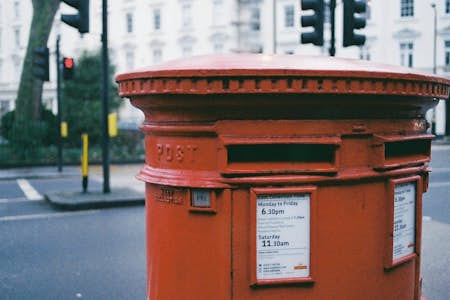Putting aside money for your grandchildren can help provide for them in the future. Thanks to compounding interest, the cash you save through the years can add up to a significant amount. To get the best savings account, you generally will look for the highest rate of return.
At the moment, that will typically be through a Junior ISA. However, it’s important that you consider other factors within your specific circumstances to ensure that the final chosen product is right for you and your grandchild, even if that means opening an account with a lower rate.
Save for your grandchildren's future by checking out the UK's leading Junior ISA providers now.
Why are Junior ISAs the best savings accounts for grandchildren?
As of November 2023, junior ISAs offer the best interest rates over other products and are a tax-free savings solution. The result is more interest stays within your grandchild’s account, so the compound growth over time adds up. We have found a cash ISA which offers 5.5% interest from Beverley Building Society and others that offer near 5% from Coventry Building Society and Loughborough Building Society.
What is a Junior ISA?
Junior ISAs are a long-term child’s savings account, with any growth in value not subject to tax. There is an annual limit to how much you can save within them every year; the annual allowance is currently £9,000. There are two types of Junior ISA - a Junior Cash ISA and a Stocks and Shares Junior ISA (available through providers such as Moneyfarm or &me).
What are the benefits of Junior ISAs?
The broad advantages of these products are the same as with an adult ISA. Opening a Junior ISA (be it a Cash or Stocks and Shares ISA) is tax-efficient. It is a common misconception that all children's earnings are tax-free. However, they pay income tax to HMRC if they earn more than the personal allowance, which, as of the 2023-24 tax year, is £12,570. So, if your grandchild earns more than that, an ISA is helpful because it will not attract additional tax payments regardless of the return. That can be extremely helpful for Stocks and Shares ISAs, which may have years where returns are very profitable.
Another advantage to ISAs is that anyone, not just a specific family member, can pay into them, so building up a substantial sum over time is possible. This is especially true when you take the effects of compounding into consideration.
Are there any drawbacks to Junior ISAs?
On the flip side, while stocks and shares ISAs may have the potential to make significant gains, there is always the risk that you lose the value of your investment on the stock market. Even with the capital gains tax rules surrounding ISAs, that is a downside you need to consider. With Cash ISAs, that risk is lower as the FSCS covers your holdings at a bank or building society up to the value of £85,000. However, the downside to Cash ISAs is that they historically offer paltry interest rates.
Other types of savings accounts for children
If a Junior ISA is not suitable for you, for whatever reason, as a grandparent, these types of accounts could be an option.
- Premium Bonds.
- Regular savings accounts.
- Junior pension.
Before opening any, however, seeking personalised financial advice from a professional adviser can often be extremely helpful as they’ll consider your circumstances. Let's discover more about these below.
Premium Bonds
You can buy Premium Bonds for as little as £25 for a grandchild under 16. The maximum amount you can buy is up to £50,000. As a grandparent buying Premium Bonds for a grandchild, you must declare a child’s parent or legal guardian to manage them. Doing so requires proof of address and date of birth.
What are the advantages of Premium Bonds?
The advantages of Premium Bonds are that by holding them, you are entering your grandchild into a prize draw for a chance to win tax-free prizes each and every month. Prizes range from £25 to £1 million, although there are only two £1 million prizes each month. However, it differs from a lottery as your grandchild will not lose the initial investment amount. In addition, they can cash in their Premium Bonds if they wish when allowed. You can purchase Premium Bonds through the National Savings and Investments (NS&I).
What are the disadvantages of Premium Bonds?
If you are looking for an investment option with a guaranteed return, like some types of saver or bank account, they are perhaps not the best choice. It is by no means a given that your grandchild would win even £25, let alone the big £1 million jackpot. As a result, with the effects of inflation, there is a high chance that any lump sum you put into Premium Bonds in a child's name will lose value.
Regular savings accounts
Regular savings accounts are another option for your grandchildren as they allow you to save a certain amount each month, earning an interest rate set from the start.
What are the advantages of regular savings accounts?
One of the fantastic benefits of children's regular savings accounts is that they offer some pretty high-interest rates. Plus, a significant advantage of opening these accounts and paying into them as a grandparent is that the interest earned is not taxed as it would be if it came from a parent. When it comes from a parent, any interest over £100 is taxed as if it were part of a parent’s earnings. That can really eat into those returns.
A savings account for a child can be an excellent way to teach them the value of money as they can also pay into the account and see their money grow. They are a good option if you want to pay into an account slowly over time or do not have a lump sum ready to invest. The high-interest rates (or AER) offered are only usually paid if you pay the minimum monthly amount. Another benefit to these accounts is that the money you put into them does not have to be locked away as it may be in fixed-term accounts or fixed-term bonds.
They can even be a good option if you are looking to open a current account with a debit card for your grandchild to use when you feel they can. Finally, you can easily open them for your grandchildren. Often, only a birth certificate is required.
What are the disadvantages of regular savings accounts?
Interest rates are not always inflation-beating with these accounts. So, over time, your money will lose value in real terms. Additionally, if you are putting away smaller sums of money regularly as opposed to a lump sum, you only ever get the rate of interest on what you have saved already. With a lump sum, you’d earn interest on the entire amount.
Junior pension
A junior pension or a junior SIPP may sound overkill when putting away money for your grandchild, but having a self-invested personal pension set up when your grandchild turns 18 can be hugely beneficial. While many of us would always have liked money towards our first home or first car when we were young adults, many of us would also be very glad to help towards our pension come retirement day. You can start a junior SIPP for a newborn, and even at that tender age, they will benefit from the same tax rules as other SIPPs.
What are the advantages of junior pensions?
For every £1 invested for your grandchild in a junior SIPP, the Government will add another 20p on top. It is possible to pay £2,880 into a SIPP every tax year for a grandchild, with the Government’s payment, that grows to £3,600. In addition to that benefit, you may take comfort in that your grandchild cannot access that money until they are at least 55. They take control at 18 when they can take over the job of managing it just like any other pension.
Ultimately, though, the best thing about a junior SIPP is the effect of compounding over so many decades. While there is always the chance that an investment's value will decrease, pension fund managers have long used stock markets to grow money over an extended timeframe. So even if you cannot stretch to the total annual amount, you can open these products with something as low as £25 a month with a provider such as Hargreaves Lansdown.
What are the disadvantages of junior pensions?
Junior pensions are not just interest-earning cash savings accounts. They invest in stocks, shares and other assets, so there is a risk of investment loss. Additionally, all the money will be locked away until they are 55. While that can be beneficial as it ensures a long-term investment timeline, you won’t necessarily see them enjoy the benefits of your kindness, plus they may find the money more helpful for other things earlier on - such as buying a house.
Finally, as they take control of their money when they’re 18, they also take over the account management of it. They’ll need to be responsible for the decisions they make about how and where the money is invested through the SIPP.
What to consider when opening a savings account for children
When opening a savings account for your grandchildren, you must consider many ideas to help you pick the best savings product for you and them. That includes:
- When you want a child to access and have control of the money. For many accounts, this is when your grandchild reaches their 18th birthday.
- Your affordability. While you may want to give your grandchild as much as possible, budgeting first so you can afford it is key.
- Your financial targets. Depending on your goal, opening an account with the highest interest rate may not always be the best option.
- Your investment timeline. The longer your time horizon, the more risk you can potentially take on.
- If the product provider is regulated. Whatever product you choose for your grandchildren, ensure the Financial Conduct Authority regulates the provider.
Image Credit: cottonbro studio at Pexels







